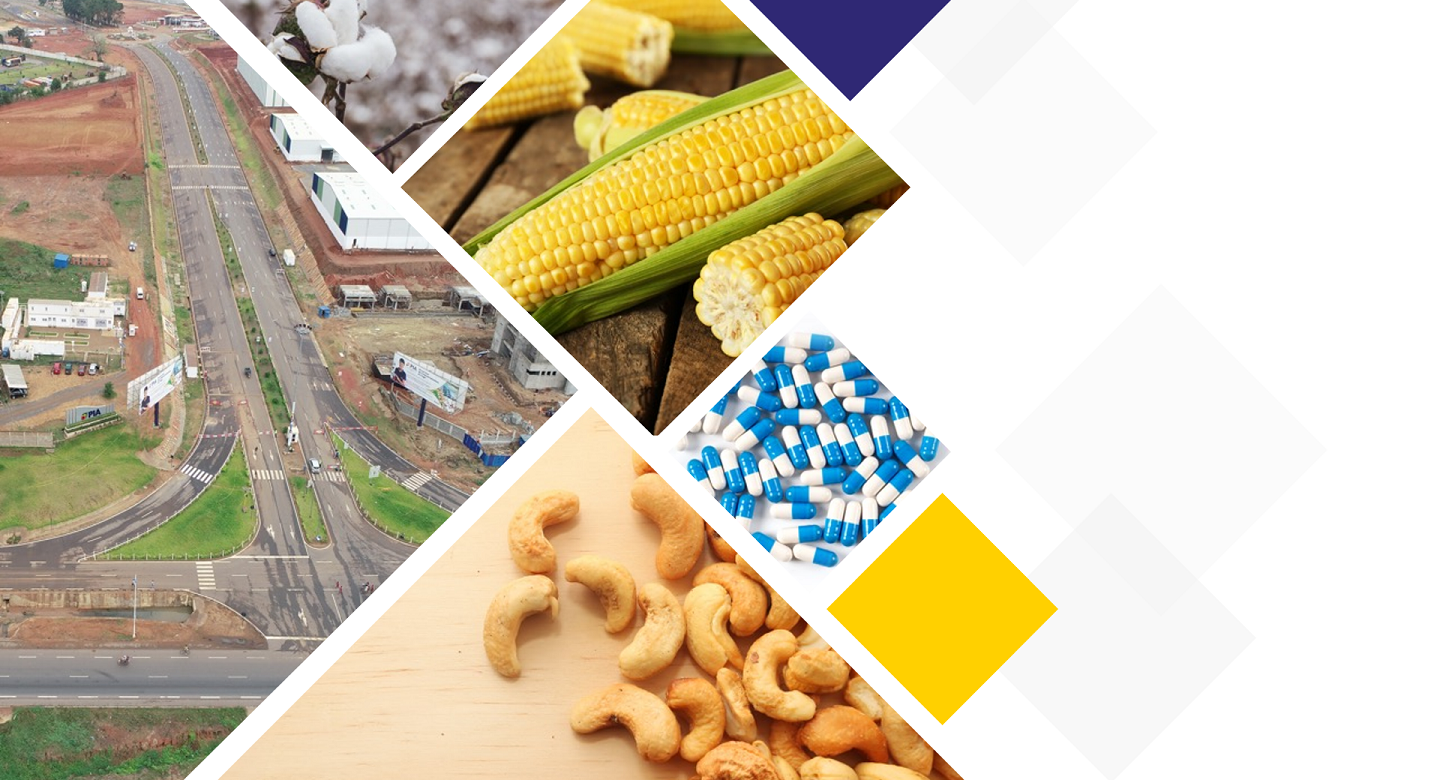Togo’s industrial opportunities unveiled
In 2020, Togo pursued reforms aimed at enhancing economic development and encouraging the business environment. The Government of Togo launched a new roadmap for 2020-2025 to engage better with the community and private sector in support of the National Development Plan (PND). The country also has taken steps towards greater industrialization with PIA (Industrial Platform of Adetikope), an industrial zone focused on textile production, agriculture processing, mineral resources, and logistics.
Since 2018, Togo has raised its ranking in the “World Bank’s Doing Business” report. Today, the country is ranked on 97th position, the highest ranking in entire West Africa. With agriculture as its core engine of economic growth, Togo has become the top exporter of organic products to Europe in the Economic Community of West African States (ECOWAS), and second in Africa followed by Egypt. The export volume of these organic products (like soybeans, pineapples, and cassava) has doubled from 22,000 tons in 2018 to 45,000 in 2019.
Recent economic and financial developments
The Government of Togo implemented various business reforms and completed large infrastructure projects over the last five years to attract overseas investment. Togo has already expanded and modernized the Port of Lomé, increased agricultural production through Agropoles, and enhanced manufacturing processes. Another goal is to improve social development, including the electrification of the country.
Togo covers an area of 22,008 square miles making it one of Africa’s smallest countries. Lomé, being the capital city, located on the Gulf of Guinea has undermined development for a long time. In 2017, the country received a credit facility of $238 million from the IMF which further increased to $4.76 billion. The country relies on various resources like agriculture, minerals, textile, and cotton industries.
Agriculture production in Togo
Togo’s population largely depends on subsistence agriculture, and some of its agricultural outputs include cocoa, coffee, corn, rice, cassava, yams, cotton, beans, millets, and more. Cash crop and food production employs most of the country’s labor force and accounts for approximately 42% of the GDP. Although Togo does not receive sufficient rainfall in most regions, it has attained self-sufficiency in various food items like cassava, corn, groundnuts, millets, and sorghum. Both small and medium-sized firms in the country are the largest producers of food crops with an average of 1-3 hectares in size. Read more.
Mining industry in Togo
Mining is one of the most crucial industries in Togo. In 2012, the industry generated 33.9% of the nation’s GDP, while in 2010, it employed approx. 12% of the total population. The country has the world’s fourth-largest phosphate deposits estimated at more than 60 million metric tons and produces about 2.1 million tons of phosphate annually. Although there has been a decline since the 1990s, the mid-1970s prices of phosphates increased fourfold, resulting in a huge increase in government revenues.
Togo also has significant deposits of other minerals like salt, marble, and limestone. Due to its large deposits of limestone in the country, Togo can also produce quality cement. Other minerals mined in Togo include gold, diamonds, bauxite, manganese, iron ore, gypsum, rutile, marble, and zinc. Read more.
Textile industry in Togo
Togo is a regional leader when it comes to textile production. The country observes an increased focus on sustainability and digitalization to enhance product value across the supply chain. However, the global textile industry is one of the major contributing factors to the rapidly deteriorating climatic conditions. Above all, the pre-pandemic emissions of 1.2 billion tonnes have made the textile industry the second-largest industrial polluter followed by the oil and gas industry.
Togo’s labour force population is expected to grow up to 4.2 million in a decade. Togo assures quality human resources with approximately 70% of its total population under the age of 30-35 years. The country is one of the youngest and growing countries, which works as a magnet for overseas investors too. Read more.
Invest in the biggest industries of Togo
Arise IIP aims at identifying the industrial gaps in African countries and introducing custom-made solutions to enable the sustainable and local transformation of raw materials, boost exports, and promote trading business while achieving greater income equality in Africa.
We are excited to know about your investment plans for Togo. Connect with us today.
